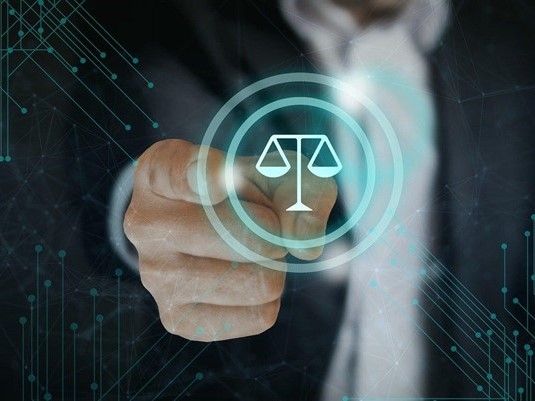In today's digital age, technology, and e-commerce have revolutionized the way businesses operate and individuals interact. As the world becomes increasingly interconnected through the internet, the legal landscape governing these digital ventures becomes equally critical. Information Technology (IT) and Ecommerce Law play a vital role in regulating the dynamic and ever-evolving digital sphere, safeguarding user rights, promoting fair competition, and fostering innovation.


Information Technology Law encompasses a wide range of legal issues related to technology, computer systems, data, and digital communication. It addresses the legal challenges faced by businesses and individuals in the digital realm, including data privacy, cyber security, intellectual property rights, software licensing, and e-commerce transactions. With the rapid advancements in technology, IT law constantly adapts to ensure that legal frameworks keep pace with emerging technological trends.
Ecommerce Law, on the other hand, specifically focuses on the legal aspects of online business activities, electronic transactions, and digital commerce. This includes legal issues related to online contracts, electronic signatures, consumer protection, online payment systems, and domain name disputes. Ecommerce Law ensures that online businesses comply with applicable regulations, promotes consumer trust in online transactions, and establishes a fair and secure digital marketplace.
One of the key areas of concern in IT and Ecommerce Law is data protection and privacy. Protecting user privacy becomes paramount as businesses collect and process vast amounts of personal data. Laws and regulations, such as the General Data Protection Regulation (GDPR), outline the rights of individuals concerning their data and impose responsibilities on businesses to handle data ethically and securely.
In the digital realm, intellectual property rights play a crucial role in safeguarding the innovations, creations, and brands of businesses. IT and E-commerce Law addresses copyright, trademark, and patent protection issues, ensuring that original works and innovations are safeguarded from infringement and unauthorized use.
E-commerce transactions involve various legal considerations, such as forming legally binding online contracts, ensuring secure payment methods, and providing clear terms and conditions to consumers. Ecommerce Law ensures that consumers are protected from fraudulent practices, misleading advertisements, and unfair business practices in the online marketplace.
With the rise of online businesses and digital transactions, cyber threats and data breaches have become a major concern. IT and Ecommerce Law focus on establishing robust cyber security measures, setting industry standards for data protection, and implementing protocols to respond to cyber incidents effectively.
Domain names are essential assets for online businesses, and disputes over domain ownership can arise. IT and E-commerce Law provides mechanisms to resolve domain name disputes and protect online brands from cybersquatting and trademark infringement.
The digital nature of IT and e-commerce often involves cross-border transactions and global interactions. Legal professionals in this field navigate the complexities of international laws, jurisdictional challenges, and regulatory variations to ensure seamless cross-border business operations.
For businesses and individuals engaging in the digital landscape, understanding and complying with IT and Ecommerce Law is crucial to success and legal protection. Seeking legal expertise from professionals well-versed in this specialized area ensures that your digital ventures are conducted by the law, allowing you to focus on innovation, growth, and delivering quality digital services.
The scope of Information Technology and E-commerce Law in the UAE is vast and continuously expanding as the nation rapidly adopts digital technologies and embraces the benefits of e-commerce. The UAE government has recognized the significance of digital transformation and has taken various initiatives to promote and regulate the digital economy. Here are some key areas within the scope of IT and E-commerce Law in the UAE:
E-commerce Regulations:
The UAE has enacted specific laws and regulations governing e-commerce activities, including online business registrations, consumer protection, electronic contracts, and digital payments. These regulations aim to ensure a fair and secure environment for e-commerce transactions and protect the rights of consumers.
Data Protection and Privacy:
The UAE has implemented data protection laws, such as the UAE Data Protection Law, to safeguard personal data and ensure its lawful processing and storage. These laws outline the responsibilities of businesses in handling data and protecting the privacy of individuals.
Cyber security:
With the increasing reliance on digital platforms, the UAE places significant importance on cyber security. The nation has implemented cyber security laws and established the National Electronic Security Authority (NESA) to enhance cyber security measures, protect critical infrastructure, and combat cyber threats.
Intellectual Property Rights:
The UAE has robust intellectual property laws that protect copyright, trademarks, patents, and other forms of intellectual property. This ensures that businesses and individuals are safeguarded against intellectual property infringements in the digital domain.
Online Branding and Domain Name Disputes:
E-commerce businesses often face domain name disputes and online branding challenges. The UAE provides mechanisms to resolve domain name conflicts and protect online brands from unauthorized use.
Digital Contracts and Transactions:
The UAE recognizes the validity of electronic contracts and signatures, facilitating smooth and legally binding digital transactions for businesses and consumers.
Technology and Innovation:
The UAE encourages technological advancements and innovation by providing a favorable legal environment for startups and technology companies. This includes measures to attract foreign investments and support technological research and development.
Cross-Border E-commerce:
As an international business hub, the UAE attracts global e-commerce transactions. IT and Ecommerce Laws in the UAE ensure that cross-border transactions are conducted smoothly while adhering to international regulations.
Online Dispute Resolution:
With the rise of e-commerce, the UAE is implementing online dispute resolution mechanisms to efficiently resolve conflicts arising from online transactions.
Digital Government Services:
The UAE government is actively digitizing its services, promoting the use of digital signatures and electronic records to streamline interactions with government entities.
Overall, the scope of Information Technology and E-commerce Law in the UAE is comprehensive, aiming to facilitate the growth of the digital economy, protect user rights, enhance cyber security, and support innovation. As the UAE continues to embrace digital transformation, IT and Ecommerce Law will continue to evolve to address the legal challenges and opportunities arising in the digital realm.
If someone is a culprit and has violated Information Technology and E-commerce Law, our experienced lawyers will take strategic and decisive actions to mitigate the situation and protect your rights. Here's how our legal team will deal with such cases:
Legal Assessment:
Our lawyers will conduct a thorough legal assessment of the situation to determine the extent of the violation, the applicable laws, and the potential consequences.
Gathering Evidence:
We will gather all relevant evidence to build a strong case against the culprit. This may include digital records, transaction details, communication logs, and any other supporting documents.
Legal Remedies:
Depending on the nature of the violation, we will explore the appropriate legal remedies available under IT and E-commerce Law. This may include filing a complaint with relevant regulatory authorities, initiating civil litigation, or pursuing criminal charges if applicable.
Negotiation and Mediation:
In some cases, negotiation or mediation may be a viable option to resolve the dispute without going to court. Our lawyers will skillfully negotiate on your behalf to reach a favorable settlement.
Legal Defense:
If you are facing allegations of violating IT and Ecommerce Law, our lawyers will mount a robust defense to protect your rights and challenge the allegations against you.
Compliance Advice:
Our legal team will provide comprehensive compliance advice to ensure that your business operations align with IT and Ecommerce Law, helping you prevent future legal issues.
Dispute Resolution:
We are well-versed in handling disputes arising from e-commerce transactions, data breaches, intellectual property infringements, and other IT-related issues. Our lawyers will explore efficient dispute resolution mechanisms, including arbitration or mediation, to save time and costs.
International Expertise:
If the dispute involves cross-border transactions or international parties, our firm's international expertise will be leveraged to navigate complex jurisdictional issues and international laws.
Court Representation:
Should the case go to court, our skilled litigators will represent you assertively, presenting a compelling case and advocating for your best interests.
Proactive Approach:
Our lawyers will adopt a proactive approach to protect your business from future legal challenges, advising on best practices, and implementing risk management strategies.
Information Technology and Ecommerce Law play a pivotal role in shaping the digital economy, safeguarding user rights, and fostering trust in online transactions. As technology continues to evolve, legal frameworks must adapt to ensure a secure, fair, and innovative digital landscape for businesses and individuals alike. With the right legal guidance and compliance, organizations can confidently navigate the digital world and harness the vast opportunities it presents.
At our firm, we are committed to providing top-notch legal representation and personalized solutions to clients facing legal issues related to Information Technology and E-commerce Law. Our experienced lawyers have an in-depth understanding of this specialized area of law, allowing us to offer you comprehensive support and guide you through the complexities of the digital world.